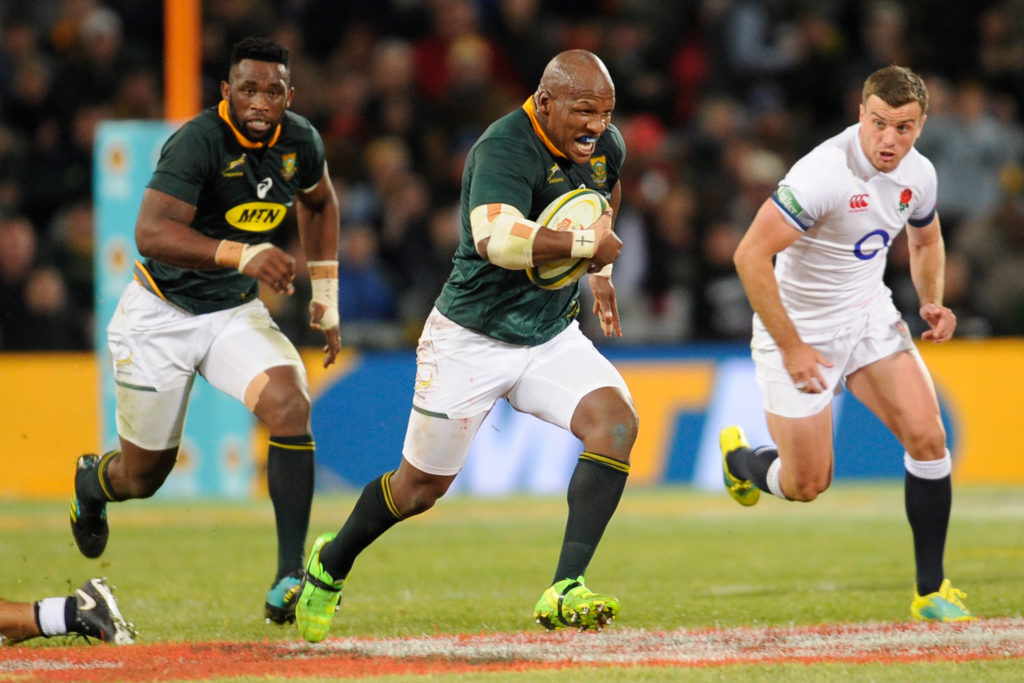There are fundamental aspects of the game that should never be undervalued, writes former Springbok captain Jean de Villiers in the latest SA Rugby magazine.
READ: What’s in our latest issue?
It surprised me to see how the Springboks copped some stick for playing ‘boring’ rugby at the 2019 World Cup. More recently, Eddie Jones’ England side has been criticised for their tactics – even though they won five games in a row.
I don’t think that criticism is justified. Whether you’re in the business world or a top-flight athlete, you start your journey with the rules and laws in front of you. From there, you formulate a plan and you build a team that will give you the best chance of winning.
Consider some of the most successful teams of the modern era. The great Vodacom Bulls side of the 2000s tailored their approach and squad to succeed under the laws, as did English giants Saracens. When they were called boring, they pointed to their trophy cabinets. Other teams that played a more ‘beautiful’ brand of rugby did not reap the same rewards.
The Boks deserve credit for their planning and their execution at the 2019 World Cup. Everything was geared towards winning matches and ultimately the greatest prize in rugby. Rassie Erasmus selected players who were best suited for that gameplan, and they executed the strategy in high-pressure situations.
Some have suggested that players should be more positive and that box kicks, for example, should be outlawed. Others have called for an end to set pieces such as the scrum, given how much time is wasted on resets over the course of a match. I don’t think they understand how these elements serve to create space to attack in the modern game.
Every coach and player talks about chasing the perfect performance – and I think South Africa’s display against England in the World Cup final was as good as it gets. The scrum fired, the defence and the kicking game were on point, and the players took excellent attacking options to score two brilliant tries. Really, what more could you ask for?
That said, you only see those perfect performances once in a blue moon. For the most part, teams will make some mistakes in their quest to pressure the opposition and execute their plan.
The Boks used the scrum as a weapon at the 2019 World Cup and their dominance led to significant rewards in the form of kickable penalties. A team with a strong scrum will always have options, though. It’s from this set piece that the attacking team can manipulate linebreaks and scoring chances – even against a well-organised defence.
A well-executed box kick can create counter-attacking opportunities. A well-weighted grubber, chip kick or kick-pass can put a teammate into space. Over the past few seasons, defensive systems have evolved, so attacking teams have had to improve their kicking and catching skills to increase their options.
How often have we seen players like Richie Mo’unga and Elton Jantjies using that kick-pass? It’s fair to say the game has evolved on that front, too.
I like the 50-22 law that was trialled recently in the Super Rugby AU competition in Australia where if a player kicks the ball from his own half, and it bounces before crossing the line inside the opposition 22, the attacking team gets the throw.
Some defending teams have adjusted and left a couple of players back in anticipation of that kick. That has in turn presented the attacking team with an opportunity to attack a frontline that’s missing a couple of players. This law is going to lead to greater attacking opportunities, and possibly more tries.
It’s great to see that there is a drive to improve and speed up the game. One would hope it remains a sport for all shapes and sizes, though.
Springbok props Steven Kitshoff and Frans Malherbe are big men, and as I’ve already mentioned, they have an important role to play at a scrum that is essential to any attacking gameplan.
What’s changed over the past five years or so, however, is the role of these giants in general play. The deft touches by Kitshoff at first receiver, the running lines of Malherbe to fracture the defence … We’ve seen other front rankers like Taniela Tupou of Australiia embracing this change and the game has certainly been better for it.
Rugby is like a game of chess, and it’s the quality of the decision-making and execution that usually determines a result. Whether a player is throwing a pass or launching a contestable kick, he is trying to create a situation that puts his team into space.
*This column appeared in the latest SA Rugby magazine, which is now on sale





